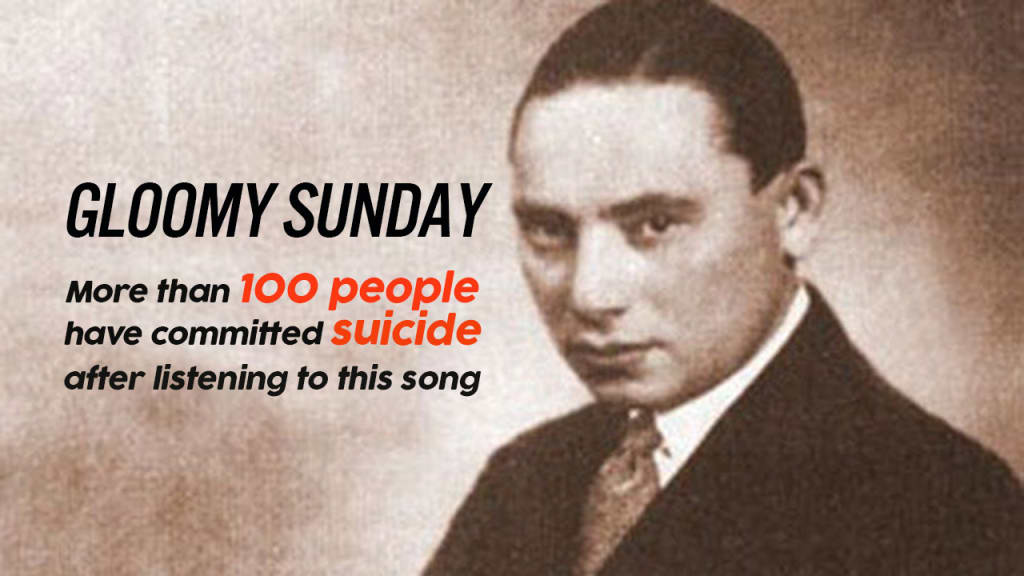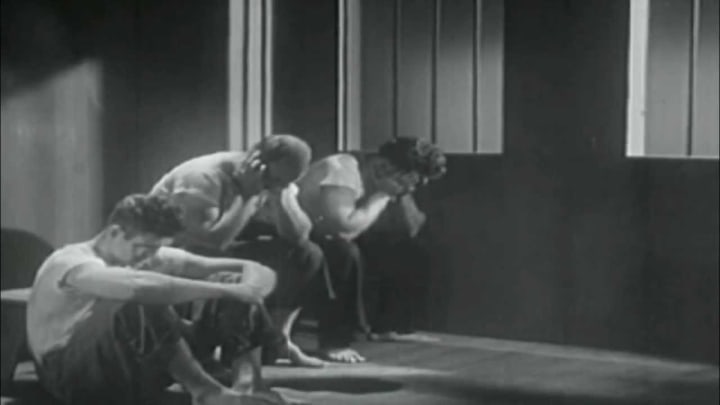the sucide song
"Unveiling the Mysteries: The Power of Dark Melodies and the Controversy of Suicide Songs"

"Unveiling the Enigmatic Melody: The Legends and Reality of 'Gloomy Sunday'"

introduction
Music holds immense power to touch our souls, evoke emotions, and even provoke contemplation.
Throughout history, certain songs have gained notoriety for their alleged ability to drive listeners to despair and, in extreme cases, even suicide.
Among such haunting compositions, one stands out: "Gloomy Sunday." This article delves into the captivating tale of "Gloomy Sunday," exploring its origins, legends, and the truths that lie within the haunting melody.
Origins of "Gloomy Sunday":

"Gloomy Sunday" (also known as the "Hungarian Suicide Song") was composed by Hungarian pianist and composer Rezső Seress in 1933.
Seress, who had experienced personal hardships and heartbreak, captured his melancholic state of mind in the song's mournful melody.
Initially, the song's lyrics were penned by poet László Jávor, narrating a tale of unrequited love, despair, and the contemplation of suicide.
The Legends:

Over time, "Gloomy Sunday" became enveloped in an aura of morbidity and misfortune.
Various legends emerged, attributing a series of suicides to the song. These narratives claimed that the song's hypnotic tune and desolate lyrics pushed individuals to take their own lives.
Though these legends were undoubtedly captivating, they lacked substantial evidence and often appeared to be exaggerated or sensationalized.
Urban Myth or Tragic Reality?

The association between "Gloomy Sunday" and suicide incidents brought the song under scrutiny.
Authorities in different countries, including Hungary and the United States, sought to ban or restrict its broadcast due to the alleged impact on vulnerable individuals.
However, upon closer examination, it became apparent that the claims surrounding the song's influence were largely based on hearsay rather than concrete evidence.
The Power of Suggestion:

Experts studying the phenomenon associated with "Gloomy Sunday" often point to the "Werther Effect" or "copycat suicides."
This psychological phenomenon suggests that media reporting and cultural narratives surrounding suicide can influence vulnerable individuals, leading to a spike in suicides.
Thus, the legends and stories connected to "Gloomy Sunday" may have inadvertently contributed to a self-fulfilling prophecy, amplifying its perceived effect on susceptible individuals.
Artistic Expression or Cursed Composition?

While the legends surrounding "Gloomy Sunday" have been largely debunked, it remains a piece of haunting artistic expression that has resonated with many.
The song's melancholic melody and poignant lyrics have touched the hearts of countless listeners, often serving as a cathartic outlet for those experiencing emotional turmoil.
It is essential to differentiate between the emotional impact of the song and the speculative claims regarding its alleged suicidal influence.
"Gloomy Sunday" (Original Hungarian Lyrics):
Szomorú vasárnap
Álom és alkohol
Melancholy Sunday
Dream and alcohol
Fényes vasárnap
Szállj az én felhőmön
Bú és fájdalom
Vár minden éjszakán
Fényes vasárnap
Örökké lásd szívemen
Én nehéz álmom
Bánatom kell
Szomorú vasárnap
Száz fehér virágot
Adok az útra
Hulljon az éjszakán
Fényes vasárnap
Testem már csak árnyék
Gyere el hozzám
Szívem fekete
Oh, vasárnap
Soha se gyere el
Könnyekkel teli
Vége az életnek
Oh, vasárnap
Soha ne gyere el
Vagy én is odaadom
Az életemet
English Translation:
Gloomy Sunday
Dream and alcohol
Melancholy Sunday
Dream and alcohol
Bright Sunday
Fly on my cloud
Sorrow and pain
Await every night
Bright Sunday
Always see it in my heart
My heavy dream
Needs my sorrow
Gloomy Sunday
I give a hundred white flowers
For the road
Let them bloom on the night
Bright Sunday
My body is just a shadow now
Come to me
My heart is black
Oh, Sunday
Never come again
Full of tears
The end of life
Oh, Sunday
Never come again
Or I will give up
My life too
Conclusion:
"Gloomy Sunday" continues to captivate and intrigue audiences worldwide with its tragic melody and tales of woe.
Despite the legends and myths that have entwined themselves with the song, it is crucial to approach the subject with a balanced perspective.
While it is true that music can profoundly affect our emotions, it is equally important to recognize that the power of suggestion and cultural narratives can contribute to the perception of a song's influence.
Ultimately, the enduring allure of "Gloomy Sunday" lies in its ability to evoke powerful emotions and serve as a testament to the deep connection between music and the human experience.






Comments
There are no comments for this story
Be the first to respond and start the conversation.